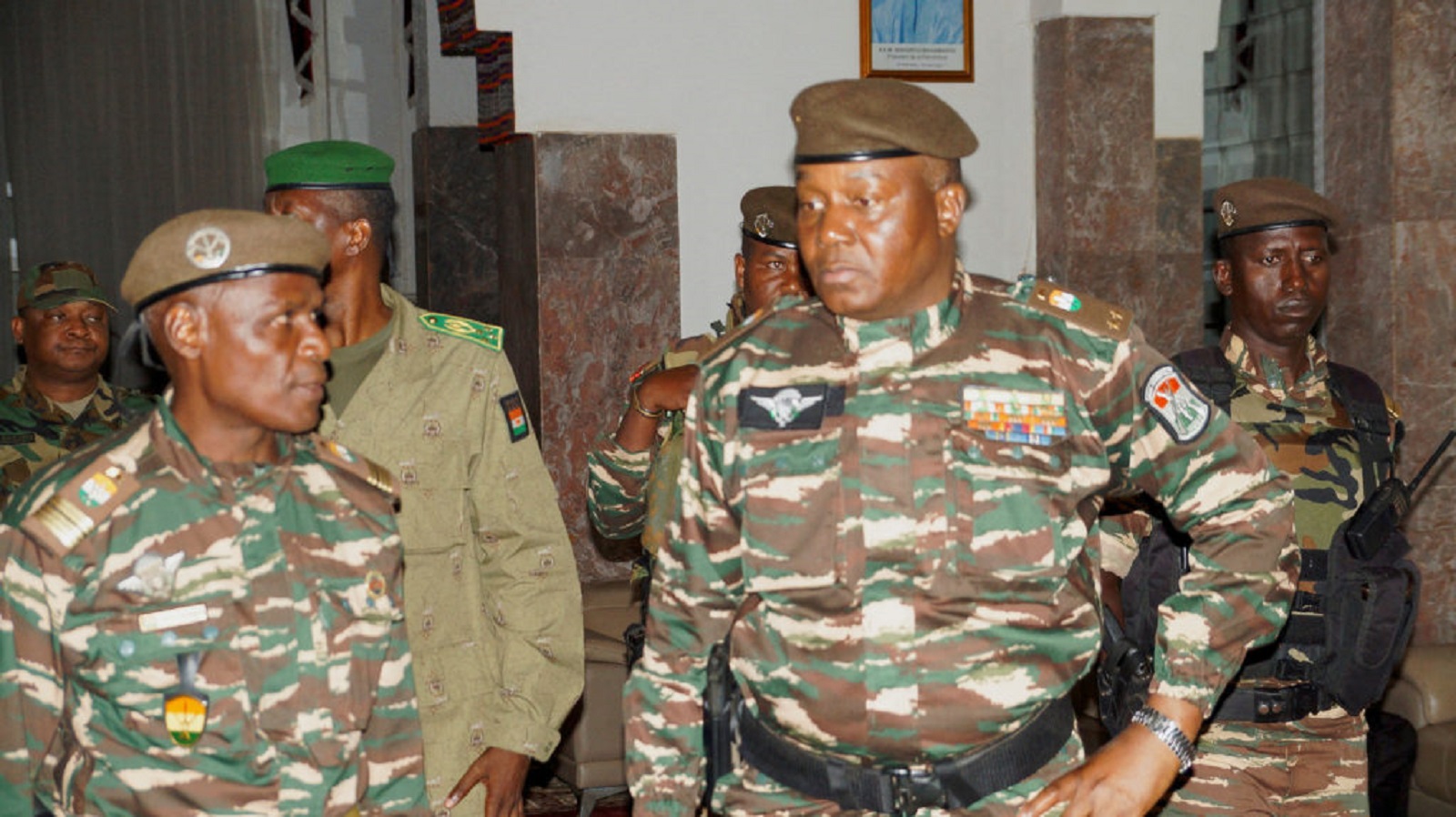Niger Junta has enlisted Mali and Burkina Faso Troops to help fight ECOWAS.
Newsonline Nigeria reports that the Niger Military junta, led by Brig. Gen. Abdrahmane Tchiani, has indicated that it has authorised the intervention of troops from neighboring Mali and Burkina Faso, intensifying the standoff with fellow West African nations.
The junta’s move comes as a response to the threat of use of force by these nations to reinstate Niger’s democratically elected president, Mohammed Bazoum.
Speaking about the decision, senior junta official Oumarou Ibrahim Sidi explained that the executive orders allow the “security forces of Burkina Faso and Mali to intervene on Niger territory in the event of aggression.”
However, details regarding the extent of military support from Mali and Burkina Faso remain undisclosed. These two countries, both under military regimes, have made it clear that any use of force against Niger’s junta by the West African bloc ECOWAS would be construed as an act of war against their own nations.
This development marks the latest in a series of bold actions taken by Niger’s mutinous soldiers, who are defying sanctions and consolidating their junta’s rule. The junta, asserting a potential three-year rule, has thrown Niger into deeper turmoil following last month’s coup.
With a population exceeding 25 million, Niger was previously seen as one of the last bastions of democracy in the Sahel region beneath the Sahara Desert. Western nations had regarded Niger as a valuable partner against the rising Jihadi insurgency in the area.
Omar Alieu Touray, the president of the ECOWAS Commission, emphasised that the bloc’s threat of force to reinstate ousted President Mohamed Bazoum remains viable, rejecting the junta’s proposed three-year transition plan.
Although 11 out of the 15 ECOWAS countries have committed to deploying troops to restore democracy in Niger, a decision to intervene is still pending. For now, diplomatic solutions are being actively pursued to reverse the coup.
One such diplomatic effort took place when Nigerian President Bola Tinubu, who chairs the regional bloc, dispatched a delegation of Islamic leaders to engage with the junta.
Touray affirmed that the heads of state within West Africa would determine the timing of a military intervention, should diplomatic avenues prove futile. “ECOWAS cannot just fold its hands,” Touray emphasized.
The specifics of the ECOWAS “standby” force are yet to be unveiled, although regional authorities have drawn parallels to the deployment of a similar force in Gambia back in 2017.
This earlier force was successful in removing President Yahya Jammeh from power after he refused to accept his election defeat.
Exploiting public grievances against France, Niger’s junta has further accused Bazoum’s administration of inadequately addressing the threat posed by Islamic extremists. In a surprising move, the junta sought assistance from the Russian mercenary group Wagner.
In response to the coup, the United States Millennium Challenge Corporation has imposed new sanctions on Niger. The organisation, which has collaborated on grant programs amounting to $750 million since 2008, suspended its initiatives aimed at improving agriculture, women’s literacy, and infrastructure in Niger. The agency declared the coup as contradictory to democratic governance principles.






